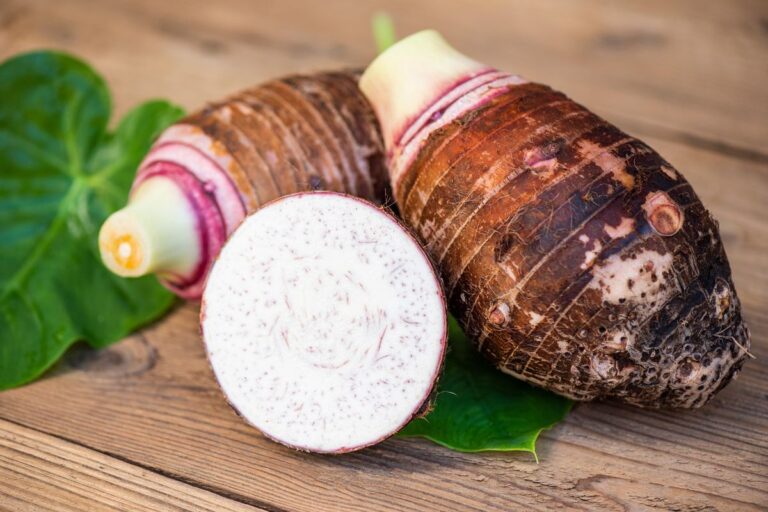Taro root, often overshadowed by more familiar tubers, is a nutritional powerhouse that’s been a staple in various cultures for centuries. Beyond its creamy texture and subtly sweet flavor, taro offers a myriad of health benefits that make it worthy of a spot on your plate.
Nutritional Highlights
A single cup of cooked taro provides:
-
Calories: 187
-
Carbohydrates: 39 grams
-
Fiber: 7 grams
-
Protein: 1 gram
-
Fat: 0.1 grams
Beyond these macros, taro is rich in essential vitamins and minerals, including:
-
Vitamin E: Supports skin health and acts as an antioxidant.
-
Vitamin B6: Vital for brain development and function.
-
Potassium: Helps regulate blood pressure and muscle contractions.
-
Manganese: Plays a role in metabolism and bone health.
-
Copper: Essential for iron metabolism and neurological function.
-
Vitamin C: Boosts the immune system and promotes skin health.
Health Benefits
-
Digestive Support: The high fiber content aids in regular bowel movements and promotes a healthy gut microbiome.
-
Blood Sugar Management: Taro’s complex carbohydrates and resistant starches lead to a slower release of glucose, helping maintain stable blood sugar levels.
-
Heart Health: Potassium in taro assists in maintaining healthy blood pressure, while its fiber content can help reduce bad cholesterol levels.
-
Weight Management: The combination of fiber and resistant starch promotes satiety, potentially aiding in weight control.
-
Antioxidant Properties: Compounds like quercetin in taro act as antioxidants, protecting the body from oxidative stress.
-
Immune Boosting: Vitamins C and E enhance immune function, helping the body fend off illnesses.
Incorporating Taro into Your Diet
Taro’s versatility makes it easy to include in various dishes:
-
Boiled or Steamed: Enjoy as a side dish or mash for a creamy texture.
-
Baked or Roasted: Slice into chips for a crunchy snack.
-
Soups and Stews: Add chunks for added nutrition and texture.
-
Desserts: Use in puddings or as a natural sweetener.
Note: Always cook taro before consumption to neutralize naturally occurring compounds that can cause irritation.
